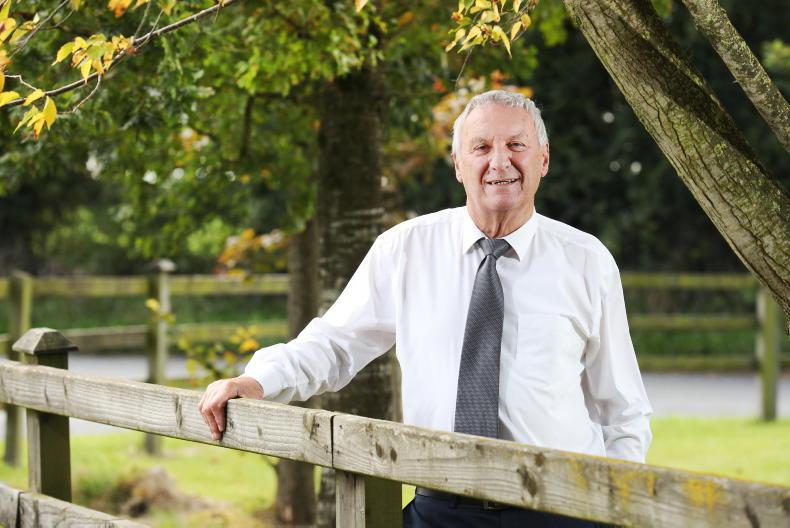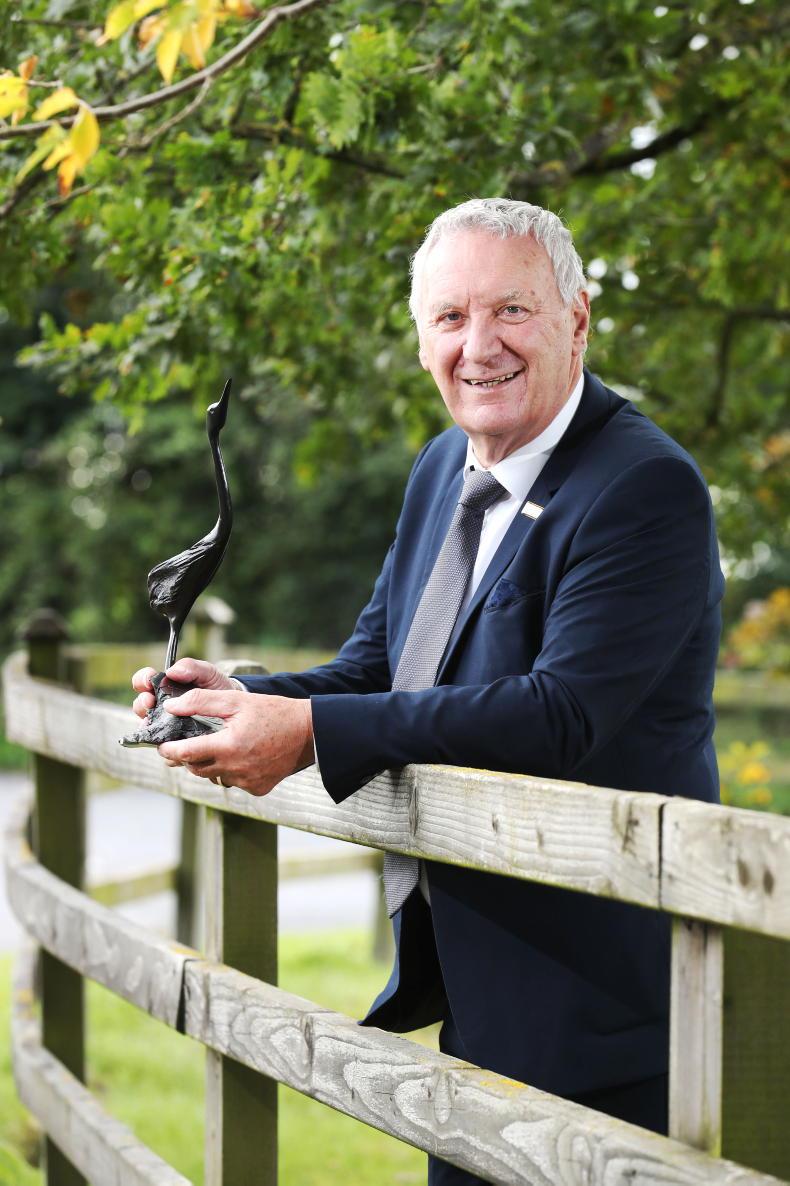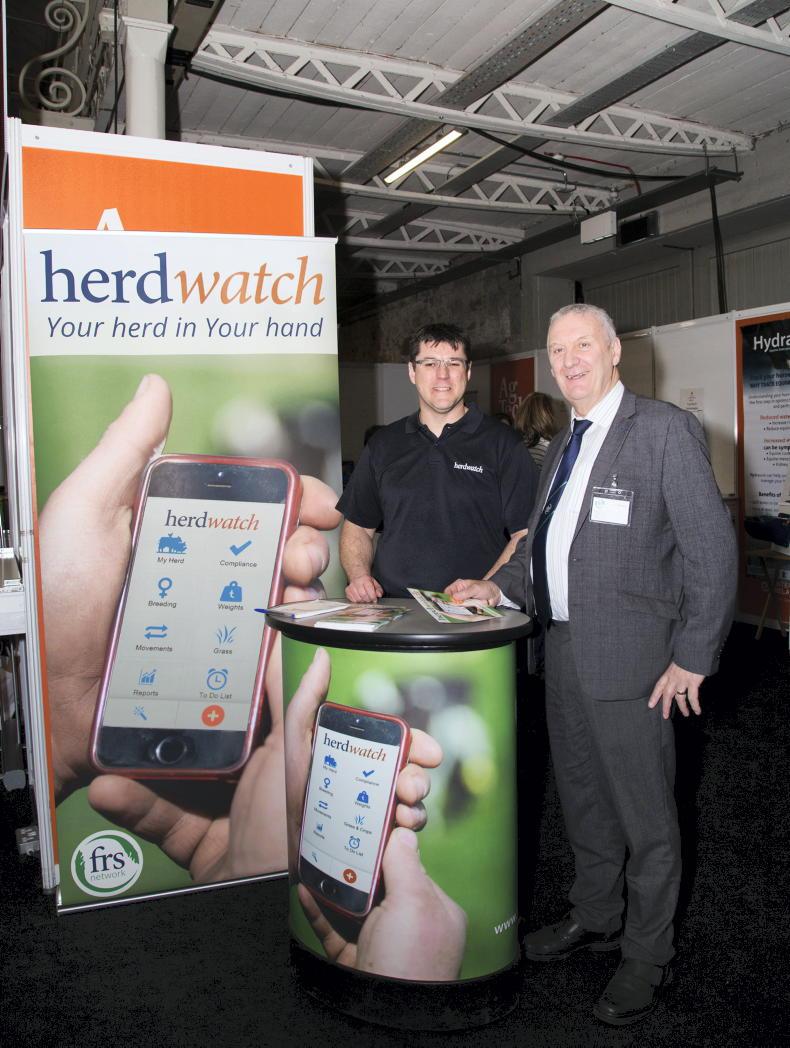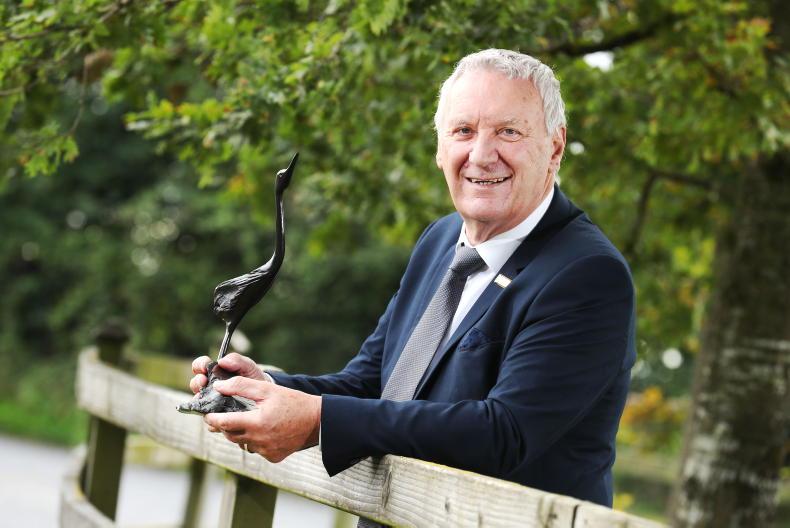Peter Byrne lives near Roscrea in Tipperary, is passionate about the GAA and is married to Joan with seven children – and he happens to be the CEO of a rural-based business turning over €100m a year.
Peter, the youngest of six, came from a farm in Tipperary, so it might seem logical that after his Leaving Cert he went to agricultural college. However, Peter had to be prompted to do so by a friend that was in UCD studying the topic. The fortunate recipient of a Department of Agriculture scholarship, Peter joined his friend in ag science in UCD in 1971.
Memories of ag in the 1970s
“My first two years were spent in Belfield, with third and fourth year in the old Albert College. There wasn’t a girl in my class, although there were two in horticulture. The social change in the last 40 years has been unreal, both educational and social changes,” Peter says.
It wasn’t all study though – Peter was chair of the ag dance committee and chair of the UCD Macra club in third and fourth year. The committee, as the name would suggest, organised a weekly dance which paid for the annual trip abroad. Peter tells us that they had the best show bands and the event attracted throngs of people every week. While on said trip, a job was advertised for an education officer in Macra.
Moving on to Macra
“I got an interview and had the job got in Macra in July, even though at that time you didn’t do your finals until September.”
A big part of Peter’s role was to organise proficiency courses. Macra members would do courses on anything from tractor maintenance to building construction to dressmaking and model building. Leadership training was a core as was the formation of new clubs.
“I got great satisfaction out of forming a new branch, seeing new members coming and what they went onto do,” he says. “That was my role, I’m not saying there was anything special about it, but it’s something (the role of an education officer) you’d get great satisfaction out of.”
A new departure
In the late 1970s, Peadar Murphy, then general secretary of Macra Na Feirne, charged Peter to initiate a pilot farm relief scheme. In 1977, there were 10 relief milking groups in existence. Peter set to work and by 1979, a further 20 groups were operating.
“The National Committee (Macra) met in the Irish Farm Centre and recommended that a cooperative structure be set up with a national body for overall coordination,” Peter explains. “Each of the 10 groups became cooperatives; getting the benefit of limited liability. Up to that, farmers could have been held personally responsible.”
In the 1980s, the FRS Network (in the form of the National Co-operative of Farm Relief Services (NCFRS)) formed and Peter Byrne was appointed as full-time general manager (CEO).
The need for labour
Peter talks about the evolution of the business over the last 40 years.
“Another social change that has taken place was back then, it was common to find two sons at home on the farm,” he says. “The second son, receiving additional income working with NCFRS.”
The company, under Peter’s leadership, continued to add new services. After joining the EEC, there was a significant rise in one man units and more dairy farms began to develop, so NCFRS moved from sheep scanning and fencing into cow scanning.
“It was just me and Noreen Feehan (Bergin), our first secretary, at first and we are both still employed by FRS, but it has built up to just under 60 staff today.”

Winner of the Agricultural Science Association 2020 distinguished member award Peter Byrne of FRS.
Leadership during times of change
Over 40 years, of course, some things didn’t work, but Peter focuses on the positives.
“We set up machinery rings and they were never going to work,” he says. “The contract fencing was and still is a big part of the services available, and although the core business remains supplying labour to farmers, diversifying is necessary.”
There was a need to constantly grow the business while not “mixing apples and oranges” as Peter describes it. To satisfy competing demands, a recruitment agency to supply the non-farming sector was set up, which now has a turnover of €20m.
Peter believes that there will always be a need for labour, but farms are run as businesses and the kind of labour required may change.
“People with robots need labour,” he says. “Someone needs to be available 24/7 as there are things they can’t do and everything else has to be done.”
Another division of FRS is Herdwatch. Peter notes this development was important:
“Recruitment and Herdwatch allowed us to employ more specialised staff,” he explains. “In the early years we were dependant on Ifac, but we were able to employ our own financial controller in 2004. Since 2005, 14 of the individual service co-ops have amalgamated into one identity; which is directly managed from here (Roscrea). It would not have been possible to manage that without having our own financial controller. Equally, Herdwatch developed with the expertise Fabian Peyaud brought to the business. He came in as IT Manager, went on to develop Herdwatch and now has a five person team.

Sponsor AIB's Tadhg Buckely, winner of the distinguished member award Peter Byrne FRS, and 2019/2020 ASA president Seamus O'Mahony.
“We got great support, initially, with grants from dairy co-ops and aid from the youth employment agency,” he continues. “Every time there was a new operational programme for rural development, we applied for funding to create jobs. So, we got significant funding and that was part of my role – to source that funding and make it available for the development of the organisation.”
The people business
“We’re a people business and finding people is the key,” Peter says.
“We have been trying to bring people in from New Zealand to coincide with their dry period. This has worked relatively well, but the numbers are quite small.”

Herdwatch, Peter Byrne, Fabien Peyaud.
While acknowledging challenges due to COVID-19, he says that “since March, our recruitment business has continued to grow; particularly in the provision of temporary staff to companies.”
Peter explains that over the last couple of years, there has always been something new happening with FRS applying and winning work with different organisations. One example is the contract they have with the Department of Social Protection, where FRS works with people that are one or more years unemployed.
“They are referred to us by the Department and it’s our job to help them back into employment,” he says. “We’ll work with them preparing CVs and preparing for interviews.”
Furthermore, FRS had the GLAS contract for Teagasc, with up to 100 agricultural graduates working on the delivery of GLAS between 2015 and 2018. They delivered training for the Beef Data and Genomics Programme (BDGP) on behalf of Teagasc; training 26,000 farmers through that, as well as supporting Bord Bia inspections.
However, Peter is keen to point out that at no stage do FRS aim to duplicate what another organisation is doing.
“We look at areas where nobody else is looking,” he says. “We don’t see ourselves as a farming advisory body, but we’re obviously interested in contract work.”
Ethos of cooperation
“Any profits made in the organisation are reinvested in it,” Peter says. “I don’t own any part of the business. The ethos and values around farm relief services are very much cooperative based. Providing a quality service to farmers is what we’ve built the service on. I want to acknowledge the role boards of management, voluntary people and farmers have played in the growth of the organisation.
“The voluntary input of farmers in doing things for themselves is second to none and that is often not recognised enough.
Read more
There is no replacing butter. A 2020 necessity - just put it in everything!
Your Money: Efficiency before expansion - financing dairy growth
Peter Byrne lives near Roscrea in Tipperary, is passionate about the GAA and is married to Joan with seven children – and he happens to be the CEO of a rural-based business turning over €100m a year.
Peter, the youngest of six, came from a farm in Tipperary, so it might seem logical that after his Leaving Cert he went to agricultural college. However, Peter had to be prompted to do so by a friend that was in UCD studying the topic. The fortunate recipient of a Department of Agriculture scholarship, Peter joined his friend in ag science in UCD in 1971.
Memories of ag in the 1970s
“My first two years were spent in Belfield, with third and fourth year in the old Albert College. There wasn’t a girl in my class, although there were two in horticulture. The social change in the last 40 years has been unreal, both educational and social changes,” Peter says.
It wasn’t all study though – Peter was chair of the ag dance committee and chair of the UCD Macra club in third and fourth year. The committee, as the name would suggest, organised a weekly dance which paid for the annual trip abroad. Peter tells us that they had the best show bands and the event attracted throngs of people every week. While on said trip, a job was advertised for an education officer in Macra.
Moving on to Macra
“I got an interview and had the job got in Macra in July, even though at that time you didn’t do your finals until September.”
A big part of Peter’s role was to organise proficiency courses. Macra members would do courses on anything from tractor maintenance to building construction to dressmaking and model building. Leadership training was a core as was the formation of new clubs.
“I got great satisfaction out of forming a new branch, seeing new members coming and what they went onto do,” he says. “That was my role, I’m not saying there was anything special about it, but it’s something (the role of an education officer) you’d get great satisfaction out of.”
A new departure
In the late 1970s, Peadar Murphy, then general secretary of Macra Na Feirne, charged Peter to initiate a pilot farm relief scheme. In 1977, there were 10 relief milking groups in existence. Peter set to work and by 1979, a further 20 groups were operating.
“The National Committee (Macra) met in the Irish Farm Centre and recommended that a cooperative structure be set up with a national body for overall coordination,” Peter explains. “Each of the 10 groups became cooperatives; getting the benefit of limited liability. Up to that, farmers could have been held personally responsible.”
In the 1980s, the FRS Network (in the form of the National Co-operative of Farm Relief Services (NCFRS)) formed and Peter Byrne was appointed as full-time general manager (CEO).
The need for labour
Peter talks about the evolution of the business over the last 40 years.
“Another social change that has taken place was back then, it was common to find two sons at home on the farm,” he says. “The second son, receiving additional income working with NCFRS.”
The company, under Peter’s leadership, continued to add new services. After joining the EEC, there was a significant rise in one man units and more dairy farms began to develop, so NCFRS moved from sheep scanning and fencing into cow scanning.
“It was just me and Noreen Feehan (Bergin), our first secretary, at first and we are both still employed by FRS, but it has built up to just under 60 staff today.”

Winner of the Agricultural Science Association 2020 distinguished member award Peter Byrne of FRS.
Leadership during times of change
Over 40 years, of course, some things didn’t work, but Peter focuses on the positives.
“We set up machinery rings and they were never going to work,” he says. “The contract fencing was and still is a big part of the services available, and although the core business remains supplying labour to farmers, diversifying is necessary.”
There was a need to constantly grow the business while not “mixing apples and oranges” as Peter describes it. To satisfy competing demands, a recruitment agency to supply the non-farming sector was set up, which now has a turnover of €20m.
Peter believes that there will always be a need for labour, but farms are run as businesses and the kind of labour required may change.
“People with robots need labour,” he says. “Someone needs to be available 24/7 as there are things they can’t do and everything else has to be done.”
Another division of FRS is Herdwatch. Peter notes this development was important:
“Recruitment and Herdwatch allowed us to employ more specialised staff,” he explains. “In the early years we were dependant on Ifac, but we were able to employ our own financial controller in 2004. Since 2005, 14 of the individual service co-ops have amalgamated into one identity; which is directly managed from here (Roscrea). It would not have been possible to manage that without having our own financial controller. Equally, Herdwatch developed with the expertise Fabian Peyaud brought to the business. He came in as IT Manager, went on to develop Herdwatch and now has a five person team.

Sponsor AIB's Tadhg Buckely, winner of the distinguished member award Peter Byrne FRS, and 2019/2020 ASA president Seamus O'Mahony.
“We got great support, initially, with grants from dairy co-ops and aid from the youth employment agency,” he continues. “Every time there was a new operational programme for rural development, we applied for funding to create jobs. So, we got significant funding and that was part of my role – to source that funding and make it available for the development of the organisation.”
The people business
“We’re a people business and finding people is the key,” Peter says.
“We have been trying to bring people in from New Zealand to coincide with their dry period. This has worked relatively well, but the numbers are quite small.”

Herdwatch, Peter Byrne, Fabien Peyaud.
While acknowledging challenges due to COVID-19, he says that “since March, our recruitment business has continued to grow; particularly in the provision of temporary staff to companies.”
Peter explains that over the last couple of years, there has always been something new happening with FRS applying and winning work with different organisations. One example is the contract they have with the Department of Social Protection, where FRS works with people that are one or more years unemployed.
“They are referred to us by the Department and it’s our job to help them back into employment,” he says. “We’ll work with them preparing CVs and preparing for interviews.”
Furthermore, FRS had the GLAS contract for Teagasc, with up to 100 agricultural graduates working on the delivery of GLAS between 2015 and 2018. They delivered training for the Beef Data and Genomics Programme (BDGP) on behalf of Teagasc; training 26,000 farmers through that, as well as supporting Bord Bia inspections.
However, Peter is keen to point out that at no stage do FRS aim to duplicate what another organisation is doing.
“We look at areas where nobody else is looking,” he says. “We don’t see ourselves as a farming advisory body, but we’re obviously interested in contract work.”
Ethos of cooperation
“Any profits made in the organisation are reinvested in it,” Peter says. “I don’t own any part of the business. The ethos and values around farm relief services are very much cooperative based. Providing a quality service to farmers is what we’ve built the service on. I want to acknowledge the role boards of management, voluntary people and farmers have played in the growth of the organisation.
“The voluntary input of farmers in doing things for themselves is second to none and that is often not recognised enough.
Read more
There is no replacing butter. A 2020 necessity - just put it in everything!
Your Money: Efficiency before expansion - financing dairy growth










 This is a subscriber-only article
This is a subscriber-only article









SHARING OPTIONS: